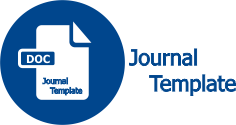Pengaruh Model Pembelajaran dan Kecerdasan Emosional terhadap Hasil Belajar Peserta Didik
(1) Universitas Negeri Makassar
(2) Universitas Negeri Makassar
(3) Universitas Negeri Makassar
(*) Corresponding Author
DOI: https://doi.org/10.26858/cer.v3i2.13768
Abstract
Keywords
Full Text:
PDFReferences
Arends. 2004. Belajar dan Pembelajaran. Jakarta: Rineka Cipta.
Arends, dalam Trianto. 2009:25,81. Mendesain Model Pembelajaran Inovatif-Progresif. Jakarta: Kencana Prenada Group.
Austin, Wendy, & Boyd, M. A. 2010. Psychiatric and Mental Health Nursing Faor Canadian Practice. London: Whurr Publishers.
Baum, S., Julie, V., & Barbara, S. 2005. Multiple Intellengences in The Classroom. Columbia University. New York: Teacher College Press.
Bilgin, I. 2009. The Effect of Guided Inquiry Instruction Incorporating a Cooperative Learning Approach on University Students’ Achievement of Acid and Based Concepts and Attitude Toward Guided Inquiry Instruction. Scientific Research and Essay, 4(10), 1038-1046.
Gagne, R. M. 1989. Kondisi Belajar dan Teori Pembelajaran. Jakarta: PAU Dirjen Dikti Depdikbud.
Goleman, D. 2003. Emotional Intelligence. Jakarta: PT. Gramedia Pustaka Utama.
Handayani, Sarwi, L., & Praptiwi. 2012. Efektivitas Model Pembelajaran Eksperimen Inkuiri Terbimbing Berbantuan My Own Dictionary untuk Meningkatkan Penguasaan Konsep dan untuk Kerja Siswa SMP RSBI. Unnes Science Education Journal, 1(2), 117-129.
Muhibbin, S. 2008. Psikologi Pendidikan. Bandung: Remaja Rosdakarya.
Slameto. 2003. Belajar dan Factor-Faktor yang Mempengaruhinya. Jakarta: Rineka Cipta.
Svyantek, D. J. 2003. Emotional Entellegence and Organizational behavior-II. The Internasional Journal of Organization Analysis, 11(3), 167-169.
Thaib, E. N. 2013. Hubungan Antara Prestasi Belajar dengan Kecerdasan Emosional. Jurnal Ilmiah Didaktika, 13(2), 384-399.
Thomas, A. 2009. Multiple Intelegences in The Classroom. CA: Cloverdale.
Trisnawati, E. I., & Suryaningsum, S. 2003. Pengaruh Kecerdasan Emosional terhadap Tingkat Pemahaman Akuntansi. Simposium Nasional Akuntansi (SNA) VI, Surabaya, 1073-1091.
Article Metrics
Abstract view : 518 times | PDF view : 67 timesRefbacks
- There are currently no refbacks.
Jurnal dipublikasikan oleh: Program Studi Pendidikan Kimia
Program Pascasarjana Universitas Negeri Makassar
Alamat JL. Bonto Langkasa Gunung Sari Makassar, 90222
Kampus PPs UNM Makassar Gedung AD ruang 406 Lt 4, Indonesia.Phone 082393643737/085145825311/085242228678
CER UNM Indexed by:

Chemistry Education Review (CER) is licensed under a Creative Commons Attribution-NonCommercial 4.0 International License.










